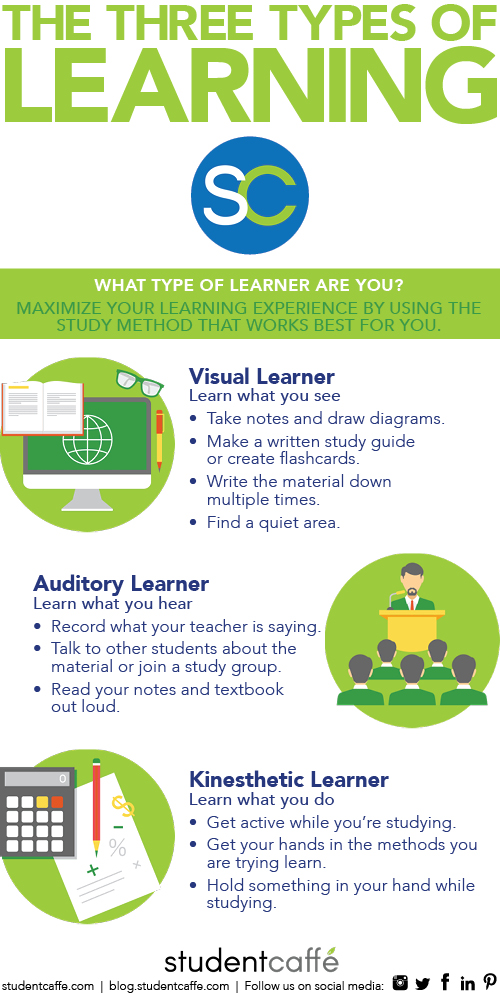
TierneyMJ / Shutterstock.com
Have you ever noticed that the way one of your professors lectures is more interesting to you than the way another does? Do you find that it’s easier to pay attention when you have your textbook open in front of you or can follow along with a slideshow? Do you prefer classes where you can get outside or into a studio or laboratory and actually do things with your hands, or are you more interested in listening? There are no right answers to these questions. People learn in different ways, which means that different teaching styles also resonate with them differently.
Think back to classes that you’ve done poorly in. Sometimes it’s a subject matter problem; if you don’t understand the material or don’t find it compelling, it’s hard to force yourself to study as hard as you might otherwise. Sometimes, though, doing poorly in a class is a matter of how your teacher teaches the material and how you’re studying it. In classes that you’ve done well in, it’s likely that your teachers; methods, your study methods, and an interest in the material all aligned.
There are three main types of learning: visual, auditory, and kinesthetic. You can take this quiz to learn which is dominant for you.
- Visual learners learn visually. They like to see and read the information that they’re trying to internalize. Written or drawn information (maps, graphs, text) appeals to visual learners. They’re good at taking notes, like to read and interpret diagrams, and have strong visualization skills.
- Auditory learners learn by hearing. They may enjoy listening to podcasts or books on tape, and prefer to hear information over reading it. Auditory learners like music and remember details of conversations, but may struggle to pay attention when there are other sounds that could be distracting in their environment.
- Kinesthetic learners learn by doing. They may have trouble sitting still or paying attention to an assignment or lecture for a long period of time without taking a break. Kinesthetic learners may be gifted athletes and enjoy class projects that involve building, experimenting, or acting.
Your learning style (or styles) won’t always match with your teachers’ teaching styles, but you can still take steps on your own to retain the information that you’re trying to learn. Consider the following study methods:

Text and design by: Anna Palmer
Once you know how you learn and what study methods are best suited to your learning style, you’ll notice a marked increase in your performance!
-
Do This, Not That: Summer Classes for Adult Students
-
Everything You Need to Know about the GMAT
-
Deciding Whether or Not You Should Drop a Class
-
Executive Functioning Skills: Cognitive Flexibility
-
How to Be a More Informed Reader of Scientific News
-
How to Talk to Your Parents about a Bad Grade
-
Eight Study Tips to Help You Master the SAT
-
Eight Ways to Lessen Stress and Fatigue while Studying
-
Six Mistakes I Made When Making My Class Schedule
-
Eight Study Tips to Help You Ace the SAT

